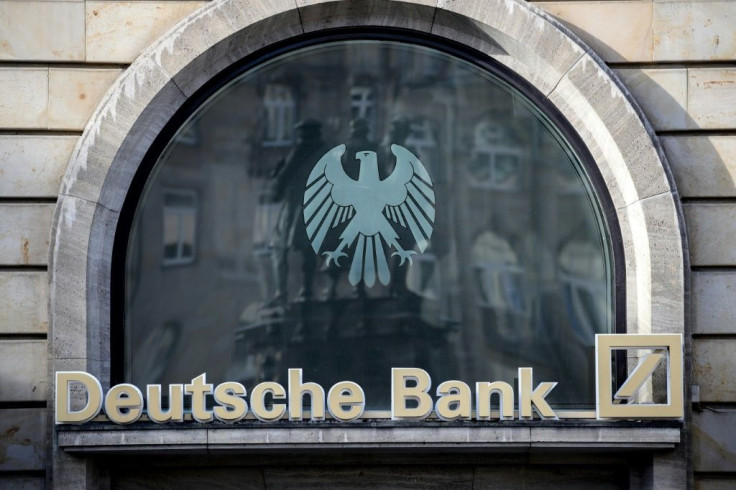Deutsche Bank Ducks Archegos Hit, Posts Best Profits Since 2014
Germany's largest lender Deutsche Bank reported its best quarterly profits for seven years on Wednesday, after it avoided being dragged into the collapse of US hedge fund Archegos that has inflicted deep pain on rivals.
Deutsche reported better-than-expected net profits for the January to March period of 908 million euros ($1.10 billion), compared with a 43-million-euro loss a year earlier.
The strong performance was driven by the group's investment arm whose well-timed exit from the Archegos fiasco prevented huge losses, allowing the long-troubled bank, for once, to stay on the sidelines of the latest scandal rocking the financial world.
The group's first-quarter revenues came in at 7.2 billion euros, up 14 percent year-on-year and exceeding analysts' expectations.
Shares in Deutsche Bank jumped more than nine percent in midday trading in Frankfurt.
"Deutsche Bank today reported its best quarterly profit since the first quarter of 2014," the company statement said.
"This result was driven by revenue growth, a substantial reduction in provision for credit losses, and lower adjusted costs year on year."
The best contribution came from the investment banking division, where revenues jumped 32 percent year-on-year.
The unit also escaped the fallout of the Archegos bankruptcy in late March.
The US family-owned hedge fund had taken huge bets on a few stocks with money borrowed from banks but collapsed when several of those bets turned sour.

Deutsche's chief financial officer James von Moltke said in a conference call that Deutsche had suffered no losses because it had limited its exposure to Archegos in time.
Other lenders were not so fortunate and have been left sitting on global losses of $10 billion, with Switzerland's UBS, Credit Suisse, Japan's Nomura and Morgan Stanley among those taking big hits.
Looking ahead, CEO Christian Sewing said this year's revenues would be close to 2020 levels, which was a strong year for the lender.
"While we can look back on an excellent quarter, the outlook is also encouraging," Sewing said in a letter to employees.
"Moreover, the past few months have shown that we are benefiting from a number of global economic trends, including ongoing high corporate and sovereign financing demands and the growing importance of sustainability."
Deutsche Bank posted last year its first annual profit since 2014 -- 113 million euros after setting aside 1.8 billion to cope with the risk of Covid-19-related credit losses -- boosted by strong gains at its investment banking division, the one-time problem child of the business.
Its worst-ever year came in 2016, when it lost 6.8 billion euros, mostly related to its investment bank's activities in the years around the financial crisis.
As a result, the investment bank was heavily hit in Sewing's restructuring plan in which targeted a reduction in posts by around one-fifth overall.
"Deutsche Bank has, at last, reported strong earnings across the board," said analyst Suvi Platerink Kosonen at ING bank.
"While this strong performance will be difficult to repeat, we expect the restructuring programme to support performance in 2021," she added.
© Copyright AFP 2024. All rights reserved.











